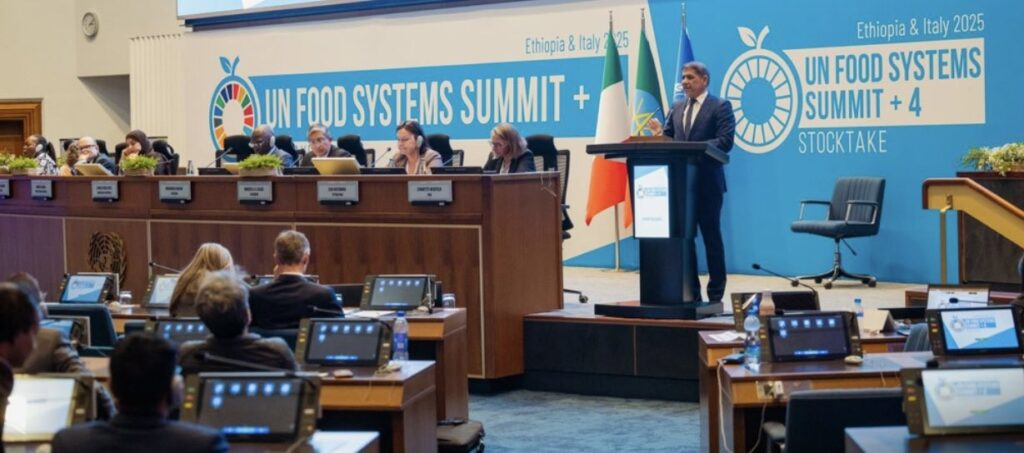
San José, 1 August 2025 (IICA). The Inter-American Institute for Cooperation on Agriculture (IICA) congratulates the Government of the Dominican Republic, and the Minister of Agriculture, Limber Cruz, in particular, on the progress the country has made in guaranteeing the fundamental right to food, which was highlighted at the Food Systems Summit held in Addis Ababa, Ethiopia.
The Dominican Republic achieved a historic reduction in its undernourishment rate, which has fallen to 3.6 percent, well below the global average of 8.2 percent, according to the latest edition of The State of Food Security and Nutrition in the World report (SOFI 2025), presented at the Summit. Just six years ago, the Dominican Republic’s undernourishment rate stood at 8.3 percent, according to data from the Ministry of Agriculture.
The Dominican agrifood strategy has included sustained investment in rural infrastructure, technological innovation, and direct support for producers, through national efforts coordinated with international partnerships, explained Agriculture Minister Limber Cruz in Ethiopia.
Positive effects
During a recent visit to the country, IICA Director General Manuel Otero noted the rapid advances achieved in the local agriculture sector’s technological development and productivity in recent years, as well as their positive impact on food and nutritional security and exports.
The robust technical cooperation agenda IICA is carrying out with the Dominican Republic includes joint efforts to combat and eradicate African Swine Fever (ASF), as well as actions on other biosafety issues. The organization is also contributing to innovation, digitalization, and the resilience of local agriculture in a number of areas.
The Caribbean nation has made farming part of its development strategies and achieved rapid progress in improving agricultural productivity. The most significant developments include the expansion of greenhouses and the growth of fruit-growing activities, whose impact is reflected in increased income for producers, further economic expansion, and healthier diets for Dominicans and visitors to the country, as Otero pointed out in Santo Domingo.
Increased productivity has also been achieved in products such as avocados, mangoes and other fruits, tomatoes, and eggs, in addition to other, traditional crops (e.g., coffee, cacao, sugar, and tobacco), while there are now surpluses of foodstuffs such as chicken, bananas, and rice.
More information:
Institutional Communication Division.
comunicacion.institucional@iica.int











